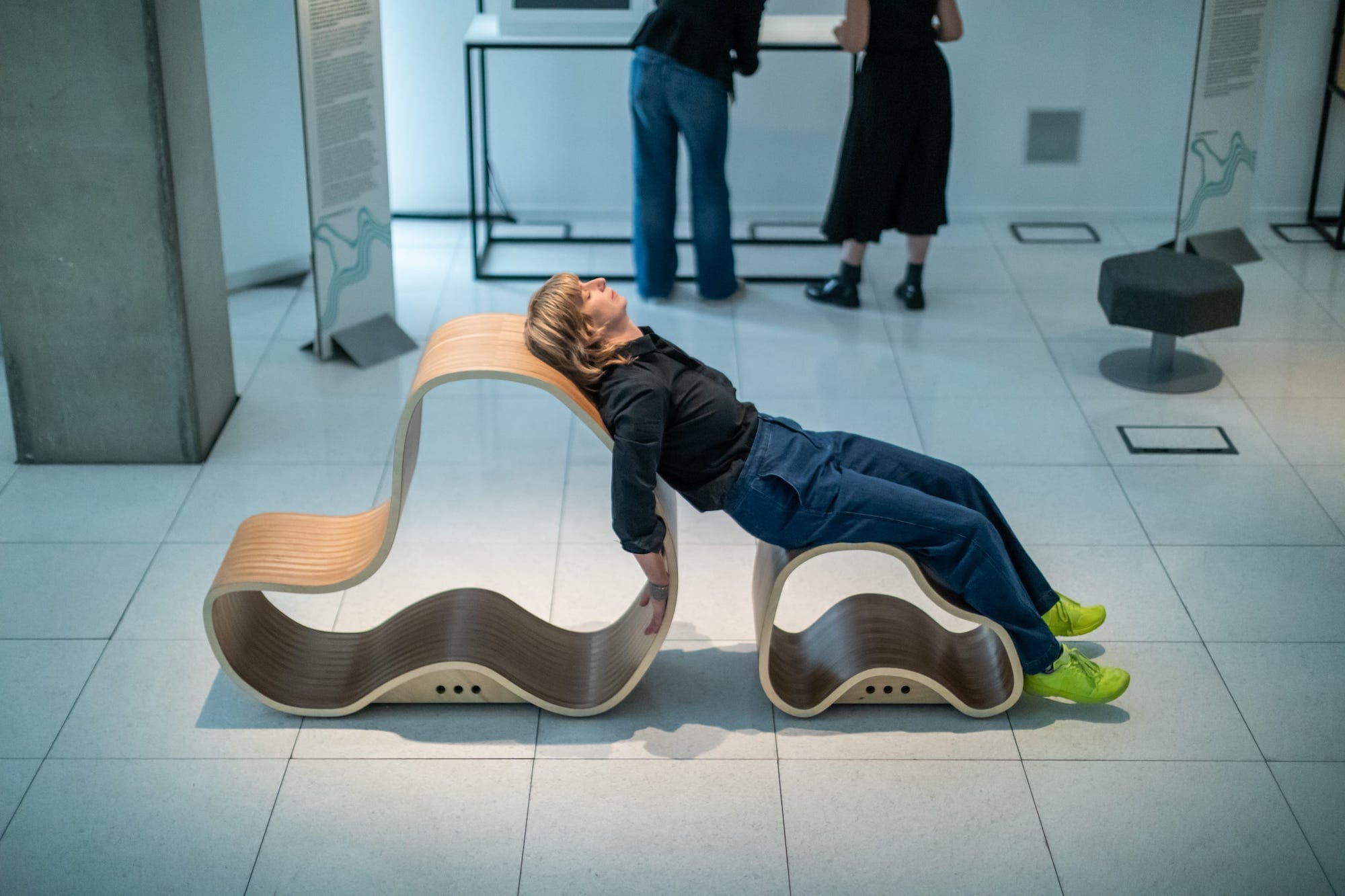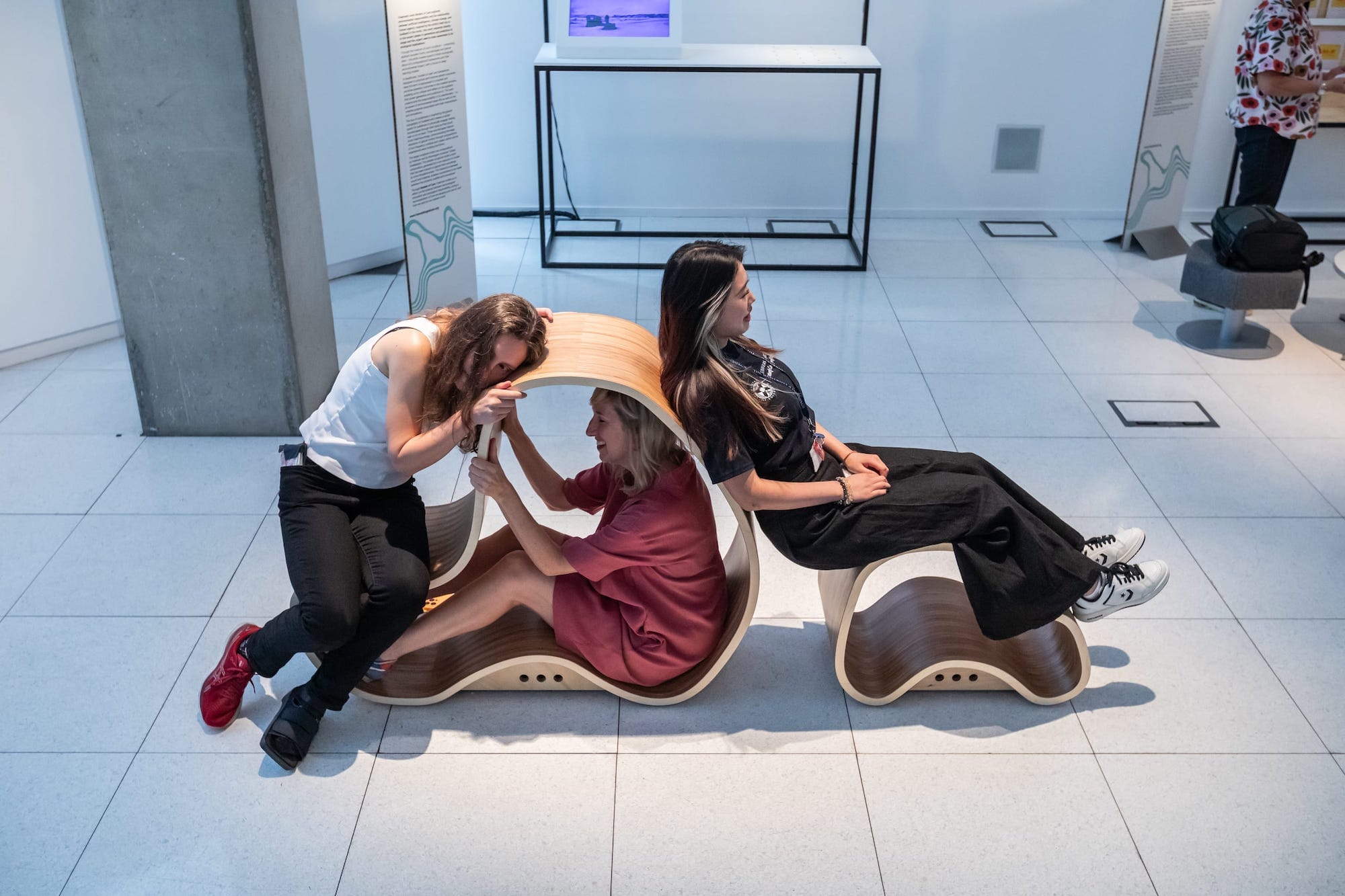Models of Care
2025
Models of Care explores environmental responsibility and the relationship between artificial intelligence, climate change, and human agency. Inspired by the artist’s field trip to Svalbard in the Arctic, this work responds directly to the recent uptake in generative and predictive AI usage and the urgent need to draw awareness to its ecological implications.
Through the medium of sonic sculpture – comprising abstract wooden forms, soundscapes and glacier data – the artist creates space to think ecologically about AI’s computational frameworks and their environmental impact, with a focus on deep learning models.
In healthcare, ‘models of care’ are frameworks designed to prioritise and improve patient outcomes. Here the term is repurposed to consider and prioritise planetary outcomes in the creative process, enabling us to critique and reflect on the systems that power generative and predictive AI. The work underscores the responsibility of AI practitioners – to be aware of environmental trade-offs as well as the creative potential associated with their interventions and innovations.
The duo of sculptures is inspired by the glacial topography of Svalbard and creates a tactile space for audiences to physically engage, feeling soundscapes through their body as they touch, lean or sit on them. Three soundscapes feature Arctic field-recordings, communicating the deep vibrations of glacial motion through compositions of low frequency rumbles and creaks, which can be experienced when holding the forms.
The larger sculpture hosts two compositions by Freeman and by Norwegian musician Torben Snekkestad. The smaller sculpture holds a third composition, generated by a low resource AI model that has been trained on glacial field recordings by Anna Wszeborowska. The interaction between sound and material, enables connections to be made between the physical, audible and conceptual.
Through Models of Care, Freeman invites us to reflect on the balance between technological innovation and ecological responsibility, urging a reconsideration of how we develop and use AI, and how we care for our natural world.
Exhibitions
Tipping Point, Inspace Gallery, Edinburgh Arts Festival, August 2025Events
V&A, London for the Digital Design Weekend part of London Design Week, September 2025Partners
Commissioned by Bridging Responsible AI Divides (BRAID)
Supported by the Glacier Lamentation project and the Norwegian Academy of Music

